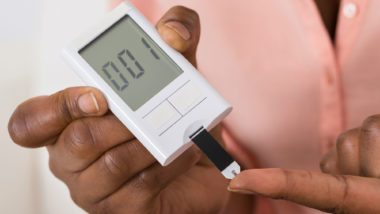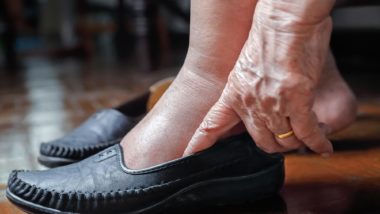Top Class Actions’s website and social media posts use affiliate links. If you make a purchase using such links, we may receive a commission, but it will not result in any additional charges to you. Please review our Affiliate Link Disclosure for more information.

Ironically, this prescription drug was intended to prevent amputations and other complications associated with diabetes, but instead has been linked to multiple risks that include loss of lower limbs.
What is Invokana/Invokamet?
Invokana (canagliflozin) is part of a class of prescription medications known as sodium glucose co-transporter 2 (SGLT2) inhibitors and is manufactured by pharmaceutical giant Janssen. It was the first diabetic drug of its kind to receive approval from the U.S. Food and Drug Administration (FDA). Invokamet is the same medication combined with metformin. Other medications in the SGLT2 inhibitor class approved for the U.S. market include Faxiga (dapagliflozin), Jardiance (empgliflozin) and Steglatro (ertugliflozin).
How Does Invokana Work?
Invokana and other SGLT2 inhibitors prevent the reabsorption of excess blood sugar (glucose) by the kidney. This happens by disabling a specific protein (SGLT2) that normally enables this process. Instead, this excess glucose is passed through the urine.
Why Does Invokana Cause Leg Amputation in Diabetics?
Invokana and other SGLT2 inhibitors increase a patient’s urine output. This can cause dehydration, which in turn, decreases the amount of blood, impairing circulation. When blood circulation is inadequate, tissues of the lower extremities are affected, increasing the risk of neuropathy (nerve damage), foot ulcers and peripheral vascular disease – all of which can lead to amputations.
How Would I Know if I am at Risk?
If you are taking Invokana or a similar medication for diabetes, signs that you are at risk for amputation may include:
- unusual pain or tenderness
- open sores or ulcers
- leg, foot and/or toe infections
You may be at an elevated risk if you have had an amputation previously, or already suffer from peripheral vascular disease or diabetic neuropathy.
Clinical studies indicate that as many as 15 out of every 2,000 patients taking Invokana wind up losing a lower limb.
What are the Most Common Types of Amputation?
Most patients wind up losing a toe, or part of their foot. However, lower leg amputation in diabetics is not uncommon.
Are There Other Risks Associated With SGLT2 Inhibitors?
Invokana and other drugs of this class have been linked to cardiovascular problems, osteoporosis, kidney injuries, ketoacidosis and pancreatitis. Most recently, researchers have found these drugs pose a serious risk of a rare condition known as Fournier’s Gangrene, a variety of necrotizing fasciitis that attacks the genital and perineal area.
Because of these complications, the FDA has so far issued a series of six separate Safety Communications warnings over the course of five years about the serious side effects that have been linked with SGLT2 inhibitor medications like Invokana.
Did the Drug Makers Know of These Risks?
This question is at the heart of ongoing litigation against Invokana maker Janssen Pharmaceuticals and other drug companies. Plaintiffs claim these manufacturers were aware of the risky side effects of their products and failed to warn doctors and patients.
It’s worth noting that when Janssen representatives presented their new product to the FDA at a public meeting in January 2013, prominent physician and consumer advocate Dr. Sidney Wolfe raised a number of concerns about “serious safety signals identified in the clinical trials.”
Have Lawsuits Been Filed?
So far, a number of lawsuits have been filed over complications associated with Invokana and other SGLT2 inhibitors. Plaintiffs allege that manufacturers failed to warn them and the medical community alike about the risk of amputation and other serious side effects linked with canagliflozin drugs. As of April 2019, almost 1,000 lawsuits had reportedly been filed over Invokana, along with dozens more filed over Farxiga.
Can I File an Invokana Lawsuit?
If you or someone you love has suffered from Invokana side effects, such as leg amputation, cardiovascular issues, or kidney damage, you may be able to file a lawsuit and pursue compensation. Of course, filing a lawsuit cannot take away the pain and suffering caused by these often serious medical complications, but it can at least help to alleviate the financial burden incurred by medical expenses lost wages, and more.
Filing a lawsuit can be a daunting prospect, especially while dealing with medical problems, so Top Class Actions has laid the groundwork for you by connecting you with an experienced attorney. Consulting an attorney can help you determine if you have a claim, navigate the complexities of litigation, and maximize your potential compensation.














